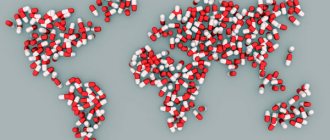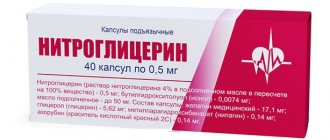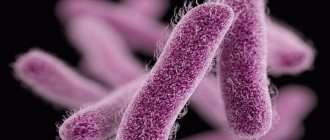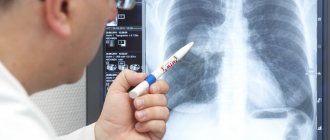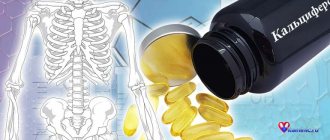Dehydration is a process that occurs due to a large loss of fluid by the body, the volume of which is several times greater than the volume that a person consumes. As a result, the normal functioning of the body is disrupted. It often presents with fever, vomiting, diarrhea and increased sweating. It occurs most often in the hot season or when performing heavy physical activity without taking too much fluid. Every person is susceptible to this disorder, regardless of gender and age, but according to statistics, children, people in the elderly age group, and people suffering from the chronic course of a particular disease are most often predisposed.
- Etiology
- Varieties
- Symptoms
- Complications
- Diagnostics
- Treatment
- Prevention
Since dehydration causes blood to thicken, rapid replacement of lost fluid can lead to swelling or death. The human body consists largely of water; it is consumed throughout life and cooked with it. The liquid is a good assistant in the elimination of waste waste products and is involved in respiratory function. A person cannot live more than ten days without drinking water.
As a rule, initial and moderate dehydration is easy to correct; you just need to take more fluids. Severe dehydration is more dangerous, so it is necessary to seek professional help as soon as possible or take the victim to a medical facility for immediate treatment. Dehydration is especially dangerous for newborns and children under three years of age, which is why parents often wonder how to determine dehydration. To do this, you just need to monitor the color of the urine and the general condition of the child - in such cases it will be quite difficult to wake him up, there will be no tears while crying, the baby will be constantly restless. At the first signs of dehydration in children, you should immediately call a doctor and begin proper treatment.
What is dehydration?
Dehydration of the body (dehydration) is understood as an insufficient content of fluid and important salts, which negatively affects the functioning of organs and systems in the body.
The average adult needs to consume almost 3 liters of fluid per day through drinking and eating (such as fruits and vegetables), but in hot weather the requirement increases.
When the body's water content is insufficient, the balance of mineral salts and sugars is altered, and this causes imbalances and difficulties for many metabolic processes, and not only: water makes up more than two-thirds of the healthy human body and performs various functions, for example:
- lubricates joints and eyes;
- helps digestion;
- eliminates waste and toxins;
- keeps skin healthy.
The body has very complex mechanisms for controlling and regulating fluid, but the elderly population, children (especially newborns) and some specific cases (for example, patients undergoing diuretic therapy) often need to drink more fluids than when simply thirsty.
The first complications can occur with even small fluid losses, so if you think you are dehydrated, it is obvious that you need to drink, but it is recommended to do this gradually to avoid overloading the stomach and the risk of episodes of vomiting. Later in the article we will tell you everything you need to know about dehydration.
Symptoms
Test to determine the degree of dehydration of the body
Depending on the severity of the disorder and age group, the signs of dehydration will differ. Initial degrees will be characterized by:
- thirst and dry mouth;
- increased fatigue;
- constant drowsiness;
- disturbances in the emission of urine. If older children, adolescents and adults do not produce urine for eight hours, it is necessary to replenish fluid reserves and seek advice from a specialist;
- headache;
- difficulties in removing feces;
- dry skin.
Symptoms of dehydration in severe stages are:
- strong need for water;
- the appearance of irritability in adults, and confusion in children;
- increase in heart rate;
- lack of sweat and urine;
- loss of skin elasticity;
- frequent breathing.
Signs of dehydration in a child will include:
- dry mucous membranes;
- lack of tears when crying;
- constant drowsiness and fussiness;
- mood swings;
- change in urine color. In this case, the discharge is accompanied by an unpleasant odor;
- long intervals between urine emissions - for infants it is three hours, and for children under three years old - six;
- retraction of the fontanel;
- loss of consciousness - but only in very severe cases.
Symptoms of dehydration in a child
Extreme thirst does not always indicate dehydration. In cases with small children and elderly people, a distinctive feature will be a change in the transparency and color of urine - the darker it is, the stronger the stage of dehydration and the greater the danger to human life.
If at least one sign of dehydration is expressed in an infant or child under three years of age, parents should immediately seek help.
Causes and risk factors
The following factors lead to dehydration:
- diarrhea: interferes with the absorption of water in the gastrointestinal tract, including from foods that contain it;
- vomiting caused by food or alcohol poisoning;
- intense sweating: a consequence of physical activity or occurring during colds;
- diabetes: some groups of drugs act as diuretics to normalize insulin levels;
- Frequent urination: can be either a feature of the body or a consequence of a disease, taking antihistamines, medications for hypertension, or antipsychotic medications.
Although anyone can experience dehydration, older adults are at greater risk.
Elderly people are susceptible to dehydration due to the fact that the feeling of thirst weakens with age; a person may simply not understand what he wants to drink or forget if there are neurodegenerative disorders (Alzheimer’s disease, dementia, etc.)
People who constantly undergo physical activity are also susceptible to dehydration. For example, athletes are more likely to become dehydrated. People involved in mountain climbing, marathon runners, triathlon or cycling participants, and basketball players are at risk.
The body's need for water
Water is a primary human need. At the moment, scientists have not been able to find a universal formula for calculating the amount of liquid that should be consumed per day.
Of great importance is:
- natural area;
- season;
- level and intensity of physical activity;
- psychological condition;
But on average you can live no more than 3-7 days without water.
Dehydration is deadly in any weather. The common belief that lack of fluid is a threat only in hot climates is erroneous.
Symptoms and complications
In adults, dehydration can be recognized by the following general signs:
- intense thirst and dry mouth;
- drowsiness, previously uncharacteristic fatigue, dizziness;
- scanty amount of urine;
- the color of the urine will become dark dark yellow;
- muscle spasms.
Signs of dehydration in the severe stage are accompanied by:
- confusion;
- drop in blood pressure;
- increased heart rate (tachycardia);
- begins to feel feverish;
- urination almost stops;
- pulse becomes weak;
- the skin and mucous membranes become bluish in color;
- the person loses consciousness.
Important! If symptoms such as vomiting, fever, diarrhea, or difficulty swallowing (even liquid cannot be “pushed” into the esophagus) appear, an adult should seek medical help as soon as possible.
In a child, the problem manifests itself slightly differently; children are susceptible to the following symptoms:
- scant discharge (the baby has almost dry diapers);
- scanty lacrimation;
- drowsiness (the child constantly wants to sleep);
- the skin and mucous membranes become dry;
- breathing quickens.
Causes of dehydration in adults
Dehydration, the symptoms of which can vary in adults, most often occurs for the following reasons:
- intense sweating (due to physical exertion, high temperatures, excessive excitement);
- increased urine output;
- insufficient amount of fluid consumed;
- acute vomiting or diarrhea.
Apart from this, there are some less obvious reasons leading to this condition:
| Breast-feeding | Along with milk, a significant amount of liquid is transferred to the baby, which reduces the overall level of hydration of the woman’s body. In this case, a clear sign of dehydration is problems with the amount of milk produced. |
| Medicines | Many medications, among their side effects, tend to increase the volume of urine excreted, which leads to the risk of dehydration. The most common example is medications intended to stabilize blood pressure. |
| Pregnancy | The increased load on all body systems associated with pregnancy causes an increase in the need for fluid. Morning sickness and vomiting also have an impact. |
| Herbs and natural nutritional supplements | Even if the packaging says that the supplement consists entirely of natural ingredients, this is not a guarantee that its use will not lead to dehydration. For example, dandelion, parsley and other herbs increase diuresis, causing dehydration. |
| Alcohol | A morning hangover is not the most serious consequence of drinking alcohol. Alcohol has a diuretic effect and also retains a certain percentage of fluid in the body, leading to decreased hydration levels. An additional problem is that drinking alcohol reduces your ability to sense signs of dehydration. |
| Diabetes | One of the most common diseases leading to dehydration, especially dangerous for those who do not yet know about the presence of diabetes. |
| Menstruation | The level of hydration of the female body largely depends on the level of estrogen and progesterone in the blood. The amount of blood released during your period can significantly reduce your fluid levels. |
Diagnostics
A doctor can diagnose dehydration based on physical symptoms, such as:
- deficiency or absence of urine;
- sunken eyes;
- lack of elasticity and skin tone.
If a person is dehydrated, it is possible:
- there will also be low blood pressure, especially when the person stands up;
- your heart will beat faster than usual;
- problems with blood circulation in the extremities will begin.
To confirm the diagnosis and determine the degree of dehydration, additional tests may be prescribed, for example:
- Blood test: This test can be used to monitor various factors, such as electrolyte levels (especially sodium and potassium) and kidney function.
- Urinalysis : Used to determine the degree of dehydration.
If the dehydration condition cannot be diagnosed with certainty, your doctor may order further tests to rule out diabetes or liver or kidney problems.
Signs of dehydration
The main sign of the onset of dehydration is a feeling of thirst and dry mouth, but experts warn that the body does not always respond with thirst to a lack of fluid, especially if there are health problems.
Therefore, you should pay attention to less obvious signs of dehydration:
- Lack of sweating during physical activity. During an intense workout, sweating is normal. Not sweating enough indicates dehydration. In this case, it is recommended to increase the amount of water consumed by 1-2 glasses.
- Excessive feeling of hunger. The same department in the brain is responsible for hunger and thirst, and people do not always interpret its signals correctly. It is quite possible that the body lacks water rather than food.
- Weight gain despite eating a healthy diet. If a person leads a healthy lifestyle and eats right, counts calories, but continues to gain weight, we may be talking about a lack of sufficient fluid intake.
- Shiny but dehydrated skin. Sometimes a person cannot accurately determine what type of facial skin is classified as. If it feels dry but continues to be shiny, it's most likely dehydration.
- The appearance of bad breath. This phenomenon can have a variety of reasons, but often it occurs due to a decrease in the amount of saliva produced. This can be corrected by increasing the daily fluid intake.
- Change in color and clarity of urine. Normally, it can have different shades, but should be transparent and light. If darkening or unhealthy color appears, it is recommended to get tested.
Treatment of dehydration
The only effective treatment for dehydration is to replace lost fluids and electrolytes; The choice of treatment approach depends on the patient's age, severity of dehydration, and cause.
Therapy for children
A pediatrician can tell you specifically how to treat dehydration in a child, but among the general rules we can list the following:
- Use an oral rehydration solution . Unless your doctor advises otherwise, use rehydration solution for newborns and young children who have diarrhea, vomiting, or fever. These solutions contain water and salts in well-defined proportions and are used to replenish both fluids and lost electrolytes; they are also easy to digest. Oral rehydration solutions are sold in pharmacies. Start administering them early in the disease and don't wait for an emergency to arrive. In case of an emergency, if a ready-made rehydration solution is not available, you can directly make one using: half a teaspoon of salt,
- six teaspoons of sugar,
- one liter of drinking water.
Measure and check the ingredients carefully because if mixed incorrectly, the solution may be ineffective or even harmful. Regardless of which alternative you choose, be sure to use enough of it. Your doctor will be able to tell you the exact amount, depending on your child's age and degree of dehydration: the rule of thumb is to continue giving fluids slowly until your child's urine clears. If the child vomits, reduce the dose and increase the frequency, such as spoonfuls every few minutes. If your child continues to vomit, wait half an hour or an hour and try again. Liquids should be served at room temperature.
- Continue breastfeeding . If your baby doesn't feel well, don't stop breastfeeding, but give him a rehydration solution in a bottle in addition to milk. If you use powdered milk instead, switch to a lactose-free product until the diarrhea goes away: if you have diarrhea, lactose can be difficult to digest and can make it worse. Never dilute milk powder more than recommended in the instructions. In some cases, your doctor may suggest replacing the artificial milk with a rehydration solution for no more than 12 to 24 hours.
- Avoid certain foods and drinks . The best drink for a child who is not feeling well is rehydration solutions : natural water does not provide the required amount of electrolytes, while isotonic drinks rich in electrolytes only replenish those lost through sweating, rather than through diarrhea or vomiting. Avoid giving your child milk, soda, caffeinated drinks, fruit juices or smoothies, which may make dehydration symptoms worse instead of relieving them.
Studying the medical history
The causes of dehydration in the human body can be very different. The main one is insufficient fluid intake. Add to this heavy sweating, overheating of the body on particularly hot days, summer food poisoning, stress at work - these are ideal conditions for the development of dehydration.
It is often provoked by the abuse of drinks with caffeine, alcohol or tobacco. However, even good habits can sometimes be harmful. Thus, intense exercise and dieting often result in an acute lack of fluid.
There are entire risk groups that are more susceptible to dehydration than others. First of all, these are children from the first days of birth to 10–12 years old, elderly people, people with chronic kidney and liver diseases, as well as those who are engaged in physical labor in the fresh air.
It is important to remember: the consequences of dehydration are fraught with serious health problems. Metabolic disorders, irreversible kidney damage, weakened immune defenses, high blood pressure - these are just a few of them. Therefore, we should not neglect the signals that the body sends us.
Prevention
To prevent dehydration, drink plenty of fluids and consume water-rich foods such as fruits and vegetables. Most healthy people can simply follow the stimulus of thirst and get all the fluids they need not only from pure water, but also from other drinks and foods. If you exercise, don't wait until you're thirsty to replenish lost fluids.
In certain circumstances, it is important to take more fluids than usual:
- Disease . At the first symptoms, start drinking or giving more water or rehydration solution without waiting for dehydration to occur. Don't be fooled by sodas, which are good but may contain too much sugar and too little sodium to replenish lost electrolytes.
- Physical exercise . In general, it is recommended to start hydrating the day before physical activity. Producing clearer urine is a sign of excellent hydration. Drink one to three glasses of water before training. Replenish fluids regularly during the activity and continue to drink (water or other liquids) even after the effort ends. Remember, however, that drinking too much alcohol not only makes you feel bloated and uncomfortable, but can also lead to a potentially fatal disorder in which your blood sodium levels drop too much (hyponatremia). Hyponatremia occurs when a person drinks more fluid than is lost through sweating.
- Environmental conditions . In hot or humid environments, you need to drink more to lower your body temperature and replace fluid lost through sweating. Even in cold climates, you may need to drink more if you sweat a lot and wear insulating clothing. Polluted or warm air can cause moisture loss, increasing daily fluid requirements; Living and working at altitudes above 2500 m can also affect the body's need for fluids. If dehydration occurs while exercising outdoors in the heat, seek shade, lie down, and drink water or a sports drink. Coaches should advise young athletes to report any symptoms of dehydration.
Life-giving prevention
Now let's talk about how to restore the body after dehydration. The first and most obvious recommendation is to drink enough water. The optimal volume ranges from 2.5 to 3 liters of water, not counting other drinks. Make it a habit to take a drink bottle with you everywhere. By the way, it won’t hurt to get a spray with thermal or mineral water. Sprinkle it on your face and hands if you constantly feel thirsty.
Hang thick curtains or reflective film on the windows of your home. Try to leave windows open at night. Just don’t forget to install a mosquito net or plug in a fumigator. To humidify and cool the air during the day, use ice heating pads. Fill them with water, freeze them and place them throughout your apartment.
You should also take care of your workplace. Place plants with large leaves, such as ficus or begonia, on your office desk. Spray them periodically from a spray bottle and constant freshness is guaranteed. You can also install an aquarium with fish in your office. All these measures will help you get into shape faster after dehydration. However, as a preventive measure they are also very effective.
Even mild dehydration can be a serious challenge for the body. Agree, it is much easier to follow basic preventive measures than to deal with the consequences of this painful condition. Especially when it comes to the health, happiness and peace of mind of the whole family.
Forecast
In most cases, mild dehydration does not cause serious consequences if the loss of fluid in the body is replenished in time, but some more serious situations can cause dangerous complications: dehydration becomes such that it changes the mechanisms of functioning of the cardiovascular system, this can lead to shock (or “collapse”). ", sudden cardiovascular failure, with loss of consciousness and threat of death) and serious damage to internal organs (heart, brain, kidneys). In these circumstances, prompt treatment is required.
Dehydration and its consequences are the main factors leading to death in the elderly during extreme heat. Additionally, in developing countries, dehydration caused by diarrhea due to infectious diseases is responsible for the deaths of 1.5–2.5 million children per year.
Complications
In cases of untimely consultation with a doctor or late treatment, dehydration causes a number of complications, including:
- Heat injury or life-threatening heatstroke - occurs due to intense exercise, heavy sweating and lack of absorption of any fluid;
- swelling of the brain - expressed due to the intake of large amounts of water after prolonged dehydration. In this case, the human body will not have time to readjust and pump a lot of fluid into the cells, which can cause them to burst;
- attacks of severe convulsions - appears due to an imbalance of electrolytes;
- shock from low blood pressure and lack of oxygen in the body. It is one of the most dangerous consequences of dehydration;
- renal failure and loss of filtration function;
- coma;
- death.
How to prevent fluid loss
It is very important to learn in time how to avoid dehydration during diarrhea:
- To begin with, drink liquid often, but in small portions and small sips, so as not to provoke vomiting.
- For diarrhea, you can take an over-the-counter medicine called Nifuroxazide. Take the drug according to the instructions for no more than 7 days. It can be given to children from 6 years of age. It will help suppress pathogenic microbes and eliminate the cause of diarrhea.
- Taking rehydration medications helps.
The most famous medicine for dehydration due to diarrhea is Regidron. This is a white powder for obtaining a water-salt solution. With its help, fluid balance is restored after diarrhea. It consists of potassium chloride, sodium chloride, dextrose and sodium citrate. 1 sachet of Regidron is diluted in 1 liter of boiled water at room temperature.
Drink the medicine in small sips after each attack of diarrhea. Shake the solution before using the next portion. The volume of 1 packet of liquid should be drunk within 1-3 hours. If signs of dehydration disappear, the amount can be reduced and the breaks in taking taken longer.
The second remedy for dehydration with severe diarrhea is Oralit. The medicine helps restore electrolyte balance. Oralite has the form of a ready-made solution. The product consists of the following components: potassium chloride, sodium chloride, sodium bicarbonate and distilled water. For infants, the product is diluted with water or tea, while adults and older children take it undiluted. The dosage for adults is 10 ml every 15 minutes.
The next medicine is Normohydron. It is an odorless white powder that is used to correct dehydration and electrolyte deficiency. It contains sodium chloride, sodium citrate, potassium chloride and anhydrous glucose. It is dissolved in the same way as Regidron: 1 sachet per 1 liter of boiled water. Drink 2 times more than the amount of fluid lost.
If you compare these drugs, you will notice a slight difference in composition. In this case, the function is the same - filling the body with fluid and mineral salts, which a person also loses during diarrhea.
Causes of body dehydration due to diarrhea
Loss of large volumes of fluid occurs with watery diarrhea. It often accompanies various infectious pathologies.
In addition, frequent loose stools occur with:
- Bacterial damage by cholera, dysentery, salmonellosis.
- Penetration of a virus, such as rotavirus.
- Parasitic infestation: giardiasis.
- Irritable bowel syndrome.
- Not digesting gluten.
- Due to taking certain medications, in particular antibiotics.
- Poisoning.
- Chronic pancreatitis.
The rate of fluid loss is related to a person’s age, the characteristics of his body, the frequency of bowel movements, and their volume. In adults, a lack of water is noted already on the first day after 3-4 bowel movements. In children, this process develops 2-3 times faster.
Diarrhea (diarrhea) as a symptom: possible causes, treatment, prevention of dehydration
Causes of diarrhea
The main means of prevention is the prevention of diseases accompanied by stool disorders. This primarily concerns intestinal infections, which most often can cause dehydration.
To prevent infection you must:
- Drink clean water from proven sources (preferably boiled)
- Wash vegetables and fruits thoroughly before eating
- Avoid eating raw fish
- Cook raw meat well
- Wash your hands after every visit to the toilet and before eating
You should not treat excessive diarrhea as a normal symptom, as serious diseases may be behind bowel problems. Timely treatment and seeking medical help will not only help maintain health, but also possibly save lives.
Preventing Dehydration
To avoid dehydration, it is necessary to maintain water-salt balance during diarrhea, despite nausea and lack of appetite.
If vomiting occurs, you should drink a little, but every 5-10 minutes. Infants are given water using a syringe without a needle. Adults can drink from a cup or with a spoon.
A healthy adult should take up to 1.5-2 liters of liquid per day, a child - 50 ml per 1 kg of weight. To prevent dehydration in infants, breastfeeding should not be stopped; on the contrary, it is necessary to give the baby breastfeeding upon request.
Drug treatment
To prevent dehydration and stop further fluid loss, it is necessary to replenish the lost water balance and provide symptomatic treatment to the patient. To do this, it is necessary to have information about the patient’s age and weight, as this is necessary to calculate the dose of medications.
With mild severity, the patient can be helped with rehydration drugs:
- Regidron. The finished powder dissolves in water and is taken in small sips throughout the day. This medicine is approved from birth.
- Hydrovit. Suitable for babies. May contain flavoring additives to improve taste. Sometimes an allergy to the drug occurs or vomiting increases. The use of this saline solution is prohibited during pregnancy, breastfeeding, renal failure, vomiting, if the patient has an excess of potassium.
- Glucosolan. It differs from Hydrovit in the presence of glucose. It comes in tablets and powder. The product can be consumed as a drink or administered into the body using a tube.
- Acesolemus. It is administered to adults by infusion, jet or drip.
- Orsol. An infusion solution is prepared from the granules for patients over 3 years of age.
Moderate and severe degrees are treated in a hospital.
When it is difficult to determine the degree of dehydration, you need to call an ambulance if:
- vomiting has started and cannot be stopped;
- diarrhea has blood in it;
- stool persists more than 5 times a day;
- fainted;
- the temperature rose greatly;
- convulsions began;
- excessive dryness of the mucous membranes and skin is observed;
- the person is delusional;
- Diarrhea began in an infant.
Traditional methods
In the absence of pharmaceutical drugs, you can independently prepare a powder for dehydration of the body. To do this, mix 4 tablespoons of sugar and 1 teaspoon of table salt.
This mixture is poured into 1 liter of boiled chilled water and taken 1-2 tablespoons every 5-10 minutes and after each bowel movement.
Treatment can also be carried out with lemon water. This will help replenish the lack of vitamins in the body. For 1 glass of water take 2 slices of lemon, 1 spoon of honey, a pinch of salt.
This remedy is drunk in small sips throughout the day.
A drink made from barley is no less effective. To do this, pour a handful of cereal with water and boil for 5 minutes. After straining, add honey and lemon juice. You need to take the medicine 5-6 times a day.
Why is dehydration so dangerous?
Everyone should know whether there is a cure for dehydration and how to act in such a situation. It's no secret that the human body mainly consists of water. This substance makes up 85% of the brain.
Even minor losses leave a serious imprint on a person’s life even in the future. Timely relief of a critical condition will save life, however, suffered dehydration provokes the development of the following conditions:
- decreased immune defense;
- Alzheimer's disease;
- Parkinson's disease;
- vascular sclerosis;
- systemic lupus erythematosus;
- bronchitis;
- asthma;
- gynecological problems.
Dehydration disrupts the normal functioning of blood vessels. Capillaries lose their former elasticity. As a result, the organs are inadequately supplied with oxygen and blood.
Weakened blood supply contributes to the development of obesity and atherosclerosis.
Pregnant women should especially carefully monitor their well-being, including during diarrhea. Loss of fluid at any stage threatens not only the woman, but also the unborn child. The fetus may be subject to significant hypoxia, which affects the development of the brain and other organs.
How to treat?
First aid
Treatment with medications is most effective for mild to moderate severity. To do this, use drugs that restore water and electrolyte balance (Regidron, Hydrovit, Regidron Bio). The dosage and frequency of use depends on the individual characteristics of the body, age and body weight of the person. A similar solution can be prepared at home.
If dehydration occurs in newborns, breastfeeding should not be stopped. A nursing mother should also monitor her diet to ensure that the baby receives all the necessary microelements and water.
Severe degrees of dehydration are treated only in a medical facility by intravenous infusion of the necessary solutions.
Infants and the elderly require immediate medical attention. In case of persistent vomiting, severe diarrhea mixed with blood, loss of consciousness, high fever, seizures, severe dry skin and mucous membranes, you must call an ambulance.
Medicines
Regidron
The drug is available in powder form for preparing a solution. It contains microelements necessary for the body. The contents of the package are dissolved in boiled and cooled water. The resulting solution must be drunk throughout the day.
The frequency and dosage of the drug depend on the weight and age of the patient.
Hydrovit
The composition includes sodium and potassium salts, silicon dioxide. Available in bags with and without strawberry flavoring. Approved for use from infancy. Side effects may include allergies and vomiting. The drug is contraindicated in case of high potassium content in the body, frequent vomiting and renal failure.
During pregnancy and breastfeeding, the use of the product should be agreed with the attending physician.
ethnoscience
Rehydration solution. It is necessary to dissolve 5 teaspoons of sugar and half a teaspoon of salt in 1 liter of water. Mix the solution thoroughly and take until symptoms disappear completely.
Water with lemon. To replenish vitamins and microelements, add a few slices of lemon, a spoonful of honey, a little salt and pepper to a glass of clean water. Mix everything and take throughout the day.
Water and barley. Take some barley, add water and boil for a few minutes. Allow the solution to cool and strain. Add honey and lemon juice.
This drink can be consumed 5-6 times a day.
If you are dehydrated, your diet should completely replenish your fluid supply. It is necessary to consume more meat and chicken broths. Include foods rich in sodium and potassium in your diet (tomatoes, potatoes, nuts, bananas, green vegetables and citrus fruits). It is not recommended to drink tea, coffee, carbonated and alcoholic drinks, fried, spicy and smoked foods.
You need to eat small portions up to five times a day.
Sample menu for the day
- Breakfast 1: oatmeal with water, lightly brewed tea.
- Breakfast 2: dried fruit compote, crackers, 1 banana.
- Lunch: vegetable soup, steamed meatballs, compote.
- Afternoon snack: green tea with mint, unsalted cookies.
- Dinner: rice with steamed meatballs, compote.
Drinking regimen
For normal functioning of the body, you need to drink 2.5 liters of water per day. Less consumption leads to weight loss, thirst, nausea and increased body temperature. Excessive water consumption also negatively affects the condition of organs and tissues. Too thin blood threatens pathologies of the heart and blood vessels, and diluted gastric juice disrupts digestion. Frequent trips to the toilet also disrupt kidney function.
Compliance with precautionary measures and preventive measures will ensure the uninterrupted functioning of the human body.
It is important not to self-medicate and seek help from a specialist in a timely manner.
Additionally, we strongly recommend watching the following video
Note!
The presence of symptoms such as:
- Diarrhea
- smell from the mouth
- heartburn
- stomach ache
- feeling of heaviness in the stomach
- constipation
- belching
- increased gas formation (flatulence)
If you have at least 2 of these symptoms, then this indicates a developing
gastritis or ulcer. These diseases are dangerous due to the development of serious complications (penetration, gastric bleeding, etc.), many of which can lead to
LETHAL
outcome. Treatment needs to start now.
Read the article about how a woman got rid of these symptoms by defeating their main cause using a natural method. Read the material…
Children under special control
Infants and children are more susceptible to dehydration than adults. Recommendations for water consumption for infants and children include moderate temperatures and moderate physical activity. Infants and children need water to supplement deficiencies in proper breathing, sweating, urination and intensive development of the body.
Since children cannot communicate their needs clearly, and toddlers may be too engrossed in what they are doing to forget to drink on time, the role of adults is very important to prevent them from becoming dehydrated, especially in the summer or during illness.
In hot weather, you can give children chilled drinks - those that they like. All drinks, including water, milk, juices, sodas and other liquids, irrigate the intestines and moisten the stool. Then there will be no problems with constipation. You should also protect children from overheating on hot days by having them rest in the shade.
Interestingly, the choice of drinks for children helps them achieve better results in tests of concentration and improves short-term memory and also helps the learning process. Therefore, it is necessary to ensure proper hydration even when children are at school. This will also relieve them from problems associated with constipation.
[12], [13]
Dehydration in expectant mothers
Dehydration during pregnancy can lead to the following consequences:
- premature birth;
- neural tube defects;
- congenital fetal defects;
- oligohydramnios.
A pregnant woman's body uses fluid in large quantities, and with the vomiting they may experience, dehydration becomes an even more likely problem. In addition to the main signs of dehydration, pregnant women may experience swollen eyes in the morning, swelling of the ankles and other parts of the body. This often leads to complications during pregnancy.
To prevent this situation, it is necessary to increase your daily water intake to 8-12 glasses.
You can add a small pinch of table salt to it to improve absorption. If you have indigestion, it is recommended to drink not during meals, but between meals. Women experiencing morning sickness are advised to drink more when nausea subsides.
If nausea and vomiting do not allow you to maintain normal fluid levels in the body, you should consult a specialist. During pregnancy, it is recommended to avoid drinks containing significant amounts of caffeine, including energy drinks. In addition to regular still water, you can drink fruit juices, milk, and broths.
It is recommended to exercise caution in any activity that involves overheating or significant physical exertion. The growth and development of the fetus largely depends on sufficient water. This is most important in the initial stages of pregnancy, so doctors recommend increasing the amount of water consumed, starting from the first weeks.
Symptoms of dehydration in adults cannot be ignored, as advanced cases can cause serious complications and lead to death. Mild dehydration that is detected in time can be easily managed at home with sufficient fluid intake.
Preventive measures
Of course, prevention is better than cure. If a good diet is a habit in a person’s life, it will help avoid the development of diarrhea, and even more so, dehydration.
The diet includes foods enriched with vitamins and minerals
It is important to ensure that there is a good balance between proteins, fats and carbohydrates. It is important to eat only fresh and high-quality food
It's better to refuse:
For digestive problems, the diet includes:
If diarrhea occurs, from the very first hours of the condition, you need to drink a sufficient amount of water and, if necessary, special solutions.
If you are attentive to your health and pay attention to alarming symptoms, you can notice the problem in a timely manner and begin treatment. This is how you can keep your life and health in order
The information on our website is provided by qualified doctors and is for informational purposes only. Don't self-medicate! Be sure to consult a specialist!
Gastroenterologist, endoscopist. Doctor of Science, highest category. Work experience 27 years.
«>
Types and degrees
In medicine, dehydration is classified based on the nature of the losses and the period that has passed since the first symptoms of the concomitant disease appeared.
There are 3 types:
- Hypertensive dehydration (intracellular) is a lack of fluid in the body, occurring with a high molality (concentration) in tissues. The reasons lie in the lack of water consumed through all possible organic inputs (gastrointestinal system, lungs and others).
- Hypotonic (extracellular) – fluid deficiency resulting from excessive loss through the kidneys and gastrointestinal tract.
- Isotonic dehydration - according to doctors, this is the most common type of fluid loss by the body through the skin, gastrointestinal tract, with the blood, as a result, and also through accumulation (without participation in organic processes) in the third space (dropsy).
Dehydration levels:
- Light when the lack of water does not exceed 2 liters or 5-6%).
- Average -
up to 4 liters (from 6 to 10%). - Severe (over 5 liters lost or already 10%).
- Acute dehydration, which can be fatal (more than 10 liters of water).
Important! Hypotonic dehydration threatens human life as it can lead to pulmonary edema.
Complications from dehydration
If dehydration is not diagnosed promptly, it can lead to serious complications.
- Decreased blood volume: Causes a decrease in blood pressure and a decrease in the amount of oxygen reaching the tissues. This can be life threatening.
- Cramps : Caused by an imbalance of electrolytes in the body.
- Kidney disease : Kidney stones and urinary tract infections can lead to kidney failure.
- Heat injuries : heat loss, mild cramps and even heatstroke.
When to see a doctor?
A healthy adult can easily cope with mild to moderate dehydration. It is enough to establish normal fluid intake. In case of severe thirst, lack of urination, wrinkled skin, dizziness, and confusion, medical help is urgently needed. Such signs of dehydration in a child or elderly person require great caution.
Call a doctor immediately if the patient exhibits the following symptoms:
- severe diarrhea with vomiting, fever;
- bloody stool;
- diarrhea for three days;
- loss of orientation, irritability, drowsiness.
If you suspect dehydration, you should contact the nearest medical facility or immediately call an ambulance.
How to cure dehydration
Dehydration is treated by replenishing fluid levels in the body. During treatment, you should drink clear liquids such as water, weak broths, ice and popsicles, and sports drinks (such as Gatorade). Some patients need to be given fluid intravenously. If you're dehydrated, avoid caffeinated drinks such as tea and coffee and don't drink soda. Ailments that cause dehydration can be treated with medications. It is possible to use anti-diarrhea, anti-vomiting and antipyretic medications sold in pharmacies without a doctor's prescription and available online.
Possible complications from lack of fluid
Hypovolemia is a dangerous condition. It is easier to avoid it than to treat the consequences of water-salt imbalance.
Possible complications of diarrheal dehydration:
- convulsions and high convulsive readiness in the future;
- decreased immune defense of the body;
- development of pathologies of the heart, blood vessels, blood;
- impaired intestinal motility;
- chronic renal failure;
- coma, death.
The danger of dehydration in intestinal disorders of various origins should not be ignored. The task of parents when a child has diarrhea is to prevent manifestations of hypovolemia. An adult must independently prevent excessive fluid loss in order to avoid complications.
The article has been approved
by the editors
What to do if you have food poisoning? First aid and folk remedies
Food poisoning is a condition that requires the earliest possible approach to starting treatment: after all, it will depend on whether the toxins have time to be absorbed into the blood and begin their negative impact on the body.
That is why it is so important to react to the disease in time and recognize it as food poisoning. Treatment at home is possible when the first symptoms appear, but if it has already gotten out of control and threatens a person’s life, you need to urgently go to the hospital or call an ambulance.
With the health of small children who are not yet three years old, as well as women during pregnancy, you especially cannot take time. After all, some still cannot clearly tell what worries them, while others risk infecting the fetus developing in their womb with toxins. Both of them are quite weak in terms of immunity, antibiotics are not recommended for them, and the development of stages of intoxication in both the child and the expectant mother can pass extremely quickly.
- nausea,
- abdominal cramps and intestinal colic,
- stool disorder in the form of diarrhea,
- vomiting,
- increased body temperature,
- dehydration of the body,
- drop in blood pressure,
- dysfunction of the central nervous system, fainting, and in the most severe cases, coma.
How to Diagnose Dehydration
Doctors use both physiological and psychological tests to diagnose dehydration. Symptoms such as confusion, low blood pressure, rapid heart rate, fever, lack of sweating, and decreased skin elasticity are usually signs of dehydration. Blood tests are done to check levels of sodium, potassium, and other electrolytes. Electrolytes are chemical compounds that regulate the body's saturation with water and play a key role in the normal functioning of the nervous and muscular systems. Urinalysis also provides a lot of useful information in diagnosing dehydration. When a person is dehydrated, the urine darkens, becomes more concentrated, and contains a certain amount of organic substances called ketones.
When diagnosing dehydration in infants, doctors examine the fontanelles for pathology (sunken fontanel). They also take into account sweating and certain characteristics of muscle tone.
